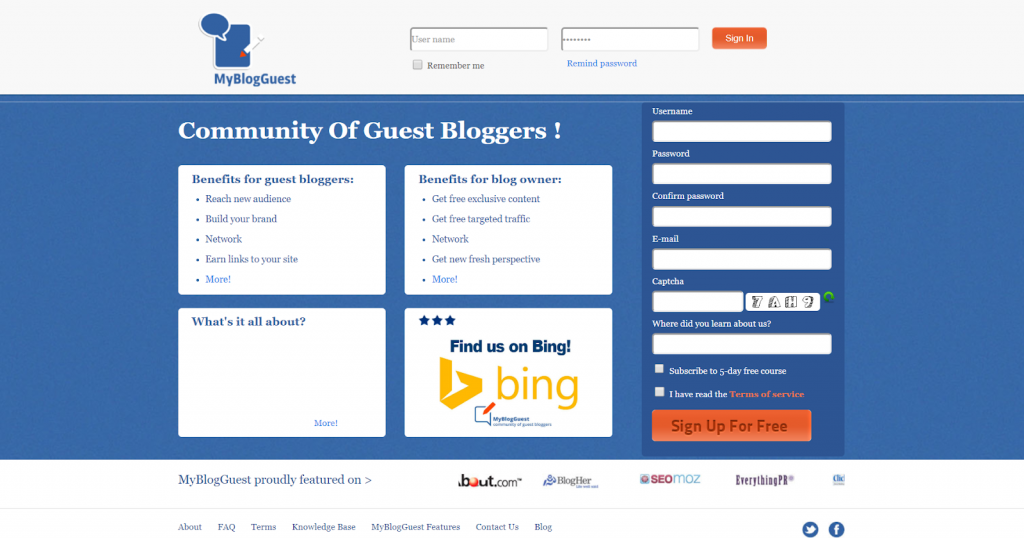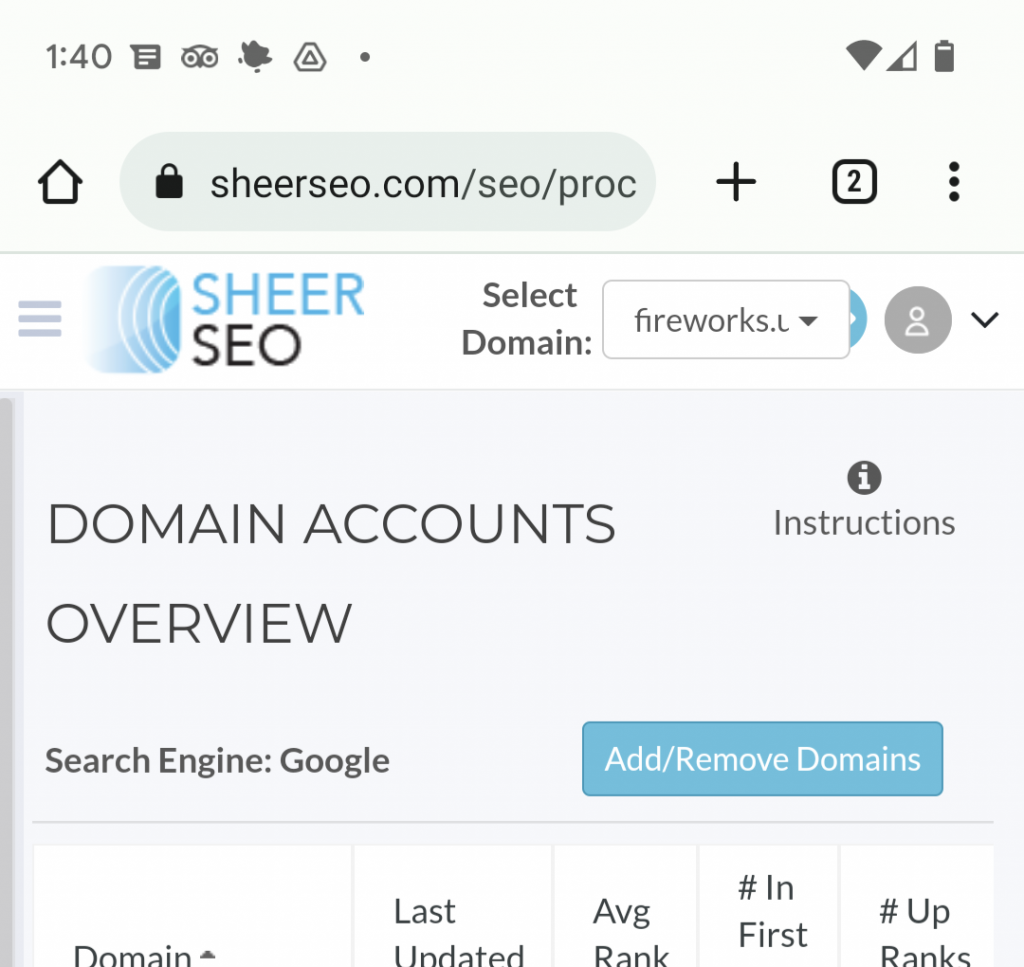Everything You Need to Know About Guest Blogging in 2020

It’s absolutely true that you should build your online business on “land” that you actually own and control. Broadly speaking, this means that you should be sharing high quality, valuable content with readers on your own website. You have complete control over how that content is presented, and you are not at the mercy of fickle algorithms that are completely outside of your control.
At the same time, having the absolute best content on “land” that no one ever visits isn’t going to do you any good either. It’s like the proverbial tree falling in the forest with no one around to hear it. It doesn’t matter whether or not it makes a sound, because no one will hear it and no one will care. Surely, you don’t want your online business to suffer the same fate. To that end, it means you need to go where your audience is. And that’s where guest blogging — yes, even in 2020 and beyond — is still a very viable and robust strategy.
Why You Should Be Guest Blogging
Before we can talk about the “how” of guest blogging, we must first answer the question of “why.” There’s a common misconception that guest blogging has become an outdated practice. You might remember several years ago when just about everyone was trying to get their feet wet with guest blogging. It didn’t take long before some individuals started to take advantage of the situation, keyword stuffing their articles and effectively buying high-value backlinks.
Google didn’t like that. Building dofollow backlinks with keyword-rich anchor text via guest blogging is still frowned upon by the world’s largest search engine. This doesn’t mean that guest blogging is dead; it just means that the way you think about it has to be different.

If you’re only setting out to game the system and rack up dofollow backlinks, guest blogging probably isn’t for you. If you’re going to position your guest blog posts as advertisements for your business, that’s not the way to go about it either. Instead, your objectives for guest blogging should be different.
Deciding on Your Objectives
The two biggest reasons why you should be guest blogging are closely related, but not exactly the same.
- Establishing yourself as an authority in your niche or industry
- Driving traffic to your website through direct links
If you’re working within the context of a company, then the first objective is more about establishing your brand as an industry leader. This means demonstrating that you have a real handle on the market and customer needs, and that you have a forward-thinking perspective on how to tackle challenges and problems that customers face. More likely, though, you’re interested in guest blogging from the context of building a personal brand.
You want to be known as the go-to expert in your field and that means getting your name out there in front of the right people. That’s why you want to go to where your audience already is. Let’s say that you want to establish yourself as a dog training expert, particularly with more difficult breeds. To that end, you’ll want to be seen by people in the dog training community, as well as by dog owners who may be interested in learning more about training techniques and strategies.
And, really, this reputation building is the biggest benefit that you’ll reap from guest blogging. By setting yourself up as the authority in your industry, you open up all sorts of other opportunities, including book deals or speaking engagements. In this way, the second big objective — driving traffic — is mostly of secondary concern. It’s not necessarily about getting readers to click the link in your guest blogger bio (more on that in a moment). It’s about getting that elusive name recognition.
The SEO Benefits
I know that I said that getting high value backlinks via guest blogging isn’t really the point. And while that’s still certainly true, there are also several SEO benefits that you can still gain from guest blogging. No longer is it about rich anchor text and keyword stuffing, though. It’s more about all the secondary signals that your guest posts send to Google.
A great example of this is exactly what was stated above as a primary objective. Even if the links to your website are nofollow, as they typically should be in a guest blogging situation, Google still sees that as a signal. If you’re looking to establish authority, when Google sees your name/brand and website attached to high quality content on high quality websites, that bodes well for the perceived value of your website too.
Similarly, even if the primary objective isn’t necessarily to garner organic traffic through links to your website, they are there and they do help. More organic traffic, even if they’re through nofollow links, send further data and signals to search engines that what you have to offer is valuable and important. It increases brand visibility and bolsters your online influence. Just remember that you have to offer real value with high quality content in your guest posts.

As with all things in business, the devil is in the details. So, you’ll want to keep track of all this data too. SheerSEO actually has tools in place precisely for guest blogging. What gets measured gets managed, right?
Not only do they provide you with the tools and tracking to make guest blogging research and analysis easier, our platform also compiles valuable site data from other platforms like Majestic SEO, while making it easier for users to understand, track and analyze for improved results.
As they say, “a picture is worth a thousand words”… so I highly recommend you take a moment to view their online demo and take a look for yourself.
Finding Guest Posting Sites
Unsurprisingly, a quick Google search will yield a number of lists of websites where you can submit a guest blog post. Several websites even have a dedicated page for submitting your guest posts. Search for “submit guest post” or some variation. You can add in your industry keyword for greater specificity, like “dog trainer guest blog” or “guest post by + dog training” to find websites where other writers may have submitted their guest posts.
After all, if a website has accepted a guest post before, chances are that they’d be open to accepting more.
One resource that you should check out is MyBlogGuest. It’s a “community of guest bloggers” where you can “reach new audiences” and “build your brand.” Blog owners sign up to receive “free exclusive content” and “free targeted traffic.” In other words, blog owners seeking guest posts are connected with guest bloggers. It’s a win-win situation.

Another way to find guest posting opportunities is through analyzing your competitor backlinks. You can do this through tools like the Moz Link Explorer or Ahrefs. Once you see where your competitors have been getting their backlinks, you can see whether you can get backlinks from there too.
You may or may not be surprised that a number of big websites accept guest submissions all the time. These include Copyblogger, Huffington Post, Business Insider, Hubspot, Sitepoint, ReadWrite, Mashable, The Good Men Project, The Guardian, and more. But, just because they accept guest post submissions doesn’t mean that they’ll publish your submission.
Approaching Individual Websites
It goes without saying that if you want your guest post to be accepted and published, especially on a higher profile website, you’ll need to bring your “A” game with the actual content. Truth be told, the guest posts that you write for other websites almost have to be better than the content you create for your own website! Remember that these guest posts should not be used or framed as advertisements; they should be providing real value to real readers on these real websites.
So, how do you get there? It starts with the art of the pitch. After you’ve decided on which website to approach, you’ll need to craft together an effective pitch. As it’s more of an art than a science, you’ll find that not every process or strategy is going to work every time. That being said, you should keep a few key pointers in mind.
- Never copy and paste a “form letter” email to multiple websites with the same pitch. Custom tailor every pitch to each website individually, including finding the name of the editor in charge of content, clearly demonstrating that you have a real interest.
- Show that you have some knowledge of the website and who their audience is. Point out how your article will be beneficial or useful to this target demographic.
- Pitch the actual idea for your guest post. Keep it short, but make it clear the kind of article you’d like to write. Also indicate that you are open to collaboration or other ideas the site editor may think are more appropriate.
- Offer a couple links to guest posts that you’ve written elsewhere (including on your own blog) so they have an idea of the quality they can expect.
- Let them know who you are. This almost goes without saying, but you’d be surprised how many pitches get little more than just a name. Who are you, really, and what do you bring to the table? What is your own blog about? Why should they consider publishing your submission?
In putting together your idea or pitch for a guest post, remember to custom-tailor the pitch to that exact site. What sort of content performs best or is the most popular there? What have other guest bloggers submitted before? How can you do it better or offer a relevant, but unique or different spin?
And be sure to read the submission guidelines very carefully. Some sites ask you to submit a completed article up front, whereas others may just ask for an idea. Some might ask for a Word doc and others may ask for HTML. How are the posts formatted on the site in terms of headings or paragraph length?
And remember above all else that the guest post shouldn’t be about you, specifically. It’s about the blog’s audience. What value are you delivering and why should they care? If you can include some internal links, that’s even better. This demonstrates to the site owner that you know what they’ve been talking about too.
Write a Killer Guest Blogger Bio
This goes back to the primary objectives you had when you wanted to get into guest blogging in the first place. The goal is to establish authority and to get your name out there, but how do you want readers to find out more about who you are and what you offer? If good backlinks and organic traffic to your website is best, then be sure to include that. If you’re looking to build your social media presence, highlight your most important profile or platform.
If you have a specific product to pitch, or you want to encourage signups to your newsletter, include that link.

While you may be tempted to load up your guest blogger bio with multiple links, this is ill-advised. It’s bad business practice, for starters, as it can leave a sour taste in the mouth of the site owner. It’s also ultimately ineffective and will be seen as spammy. Instead, keep to one or two links at most. Keep the focus crystal clear.
Remember to clearly and succinctly state who you are and why they should care who you are. What makes you an expert they should follow? Why do you matter? And then, once the post is finally published, be sure to hang around the comment section (and across social shares) for some organic engagement with real readers too. Forging these kinds of connections are really how you’ll “get your name out there” with guest posts.


Great and informative post. Guest blog posting is one of the best and effective link building technique in SEO 2020 and blogs have really great information about Guest Posting.